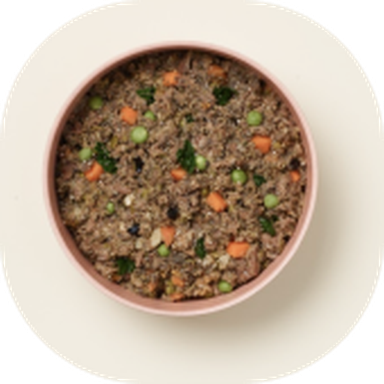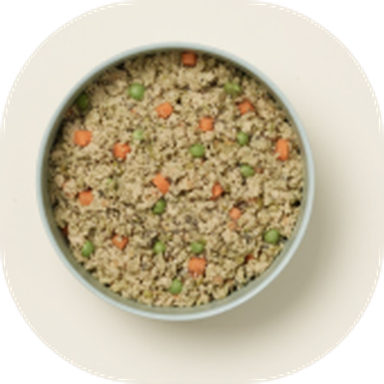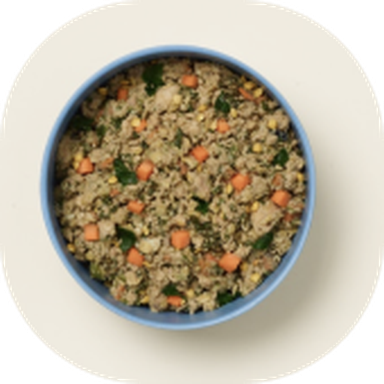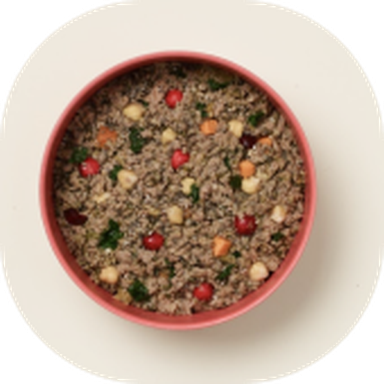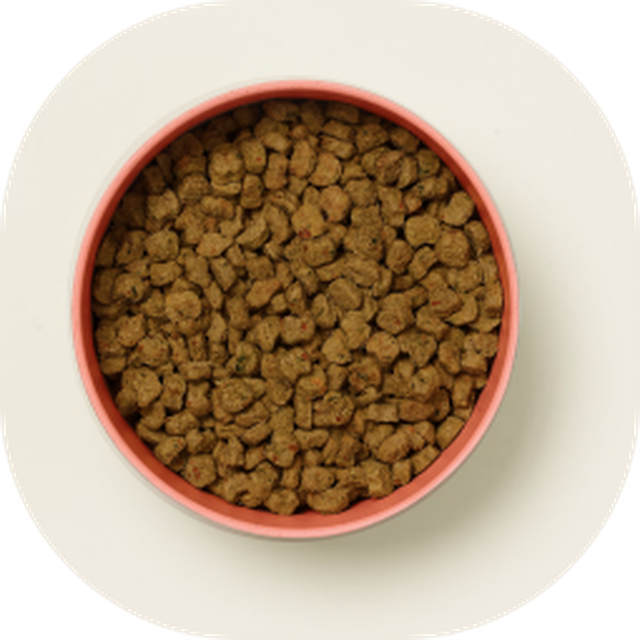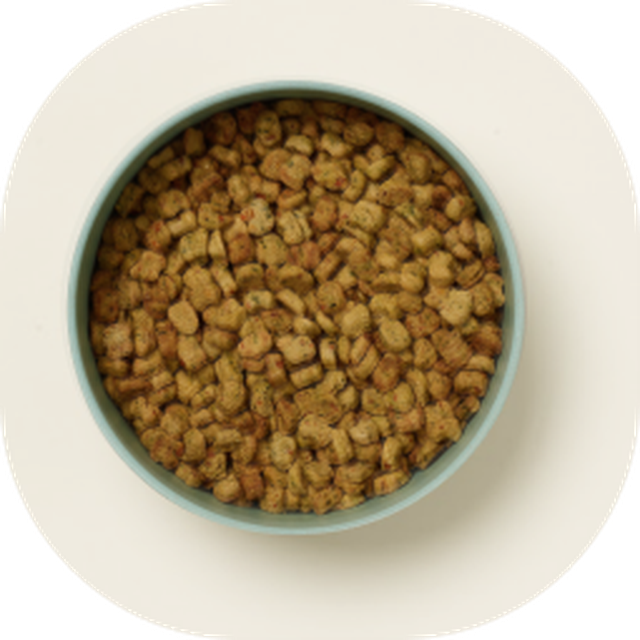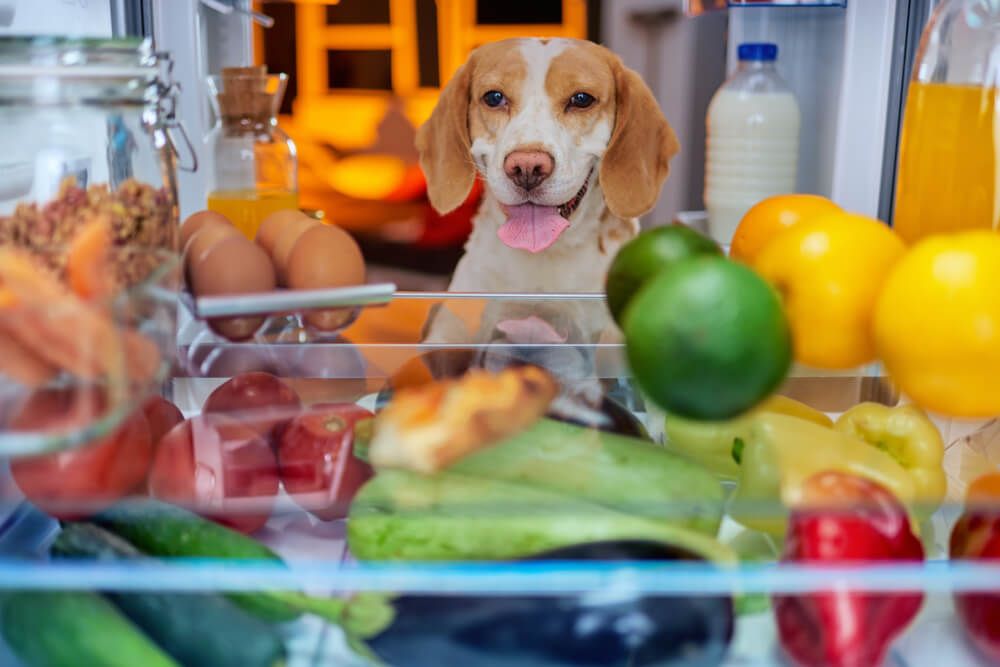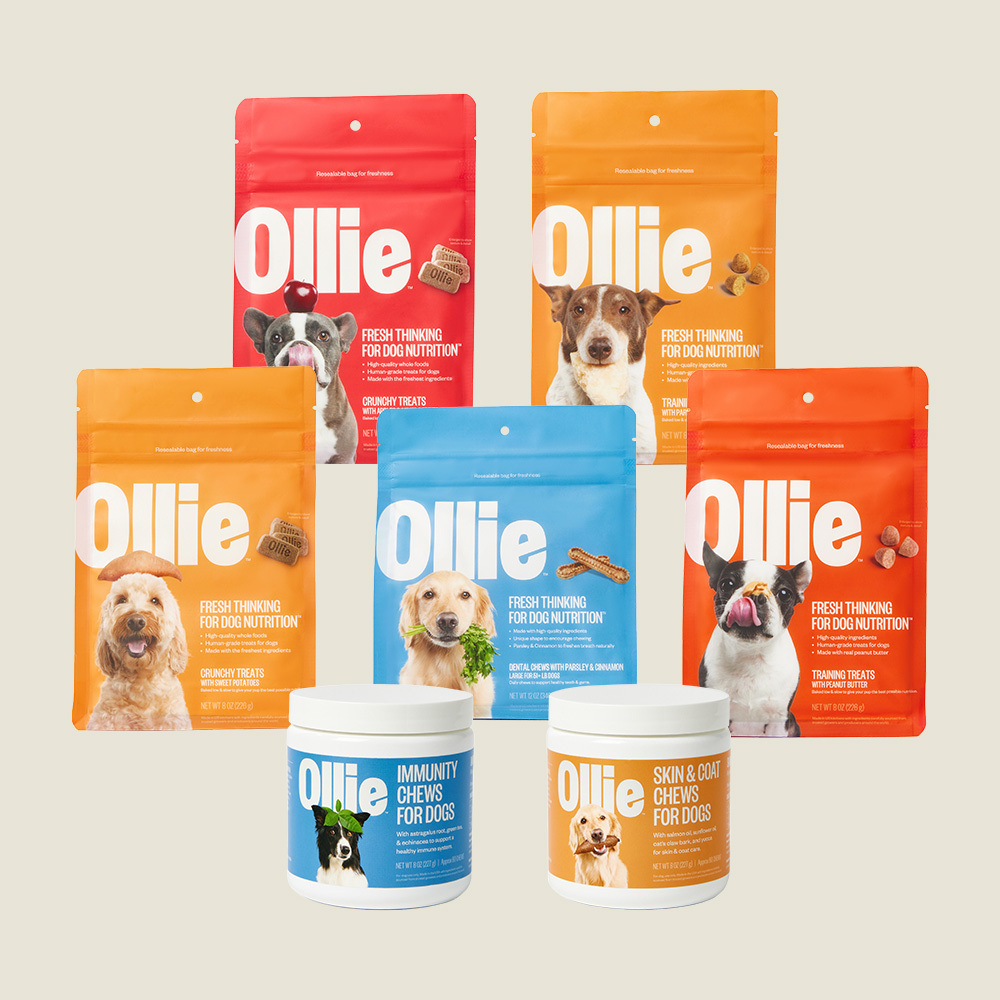Hey Ollie blog readers! We’re offering you an exclusive 60% OFF your starter box! Try now!
If you’ve recently purchased dog food, you may have noticed the label touting things like human-grade or feed-grade ingredients. But what does this even mean, are they giving out grades for dog food now?
With all of the different types of dog food and benefits listed on the packaging it can easily get overwhelming. Since we know you want to buy what’s best for your dog, we’ll explain what these different grades mean and how they impact the quality of your dog’s food so you can make the best choice for your pup.

What is feed-grade dog food?
Simply defined, feed-grade dog food is, “Material that has been determined to be safe, functional and suitable for its intended use in animal food, is handled and labeled appropriately, and conforms to the Federal Food, Drug and Cosmetic Act unless otherwise expressly permitted by the appropriate state or federal agency.”
While that definition might be simple, it still leaves a ton of room for interpretation and a lot of questions. Like, who decides what is safe and suitable? In some commercial dog foods, things like soy, wheat, and even cellulose are used as cheap fillers – even though they have little or nutritional value for your pet.
There are several governing bodies that can have a say in the ingredients and safety of dog food. They are:
The Association for American Feed Control Officials (AAFCO) – The Association for American Feed Control Officials is actually not a governing body, per se they are a volunteer organization that makes recommendations on standards.
The United States Department of Agraculture (USDA) – The USDA is responsible for ensuring the quality of the meat used in pet food as well as deciding what animal proteins can be used in pet foods.
The Food and Drug Administration (FDA) – The FDA regulates what ingredients can be used in commerical pet foods. They also are responsible for setting maximum and minimum limits on specific nutrients as well as enforcing bans on the use of of antibiotics and certain medications.
Where is feed-grade dog food found?
Most commercial food is considered feed-grade. This is because if even one ingredient in the food is not suitable for human consumption, the food can’t be labeled as human grade. This means there is quite a bit of variation in the ingredients and quality of feed-grade dog foods.
Because of the variety of food that is labeled feed-grade it is important to read the ingredient labels very carefully. What you’re looking for here is filler, byproducts or even things like added sugar or dyes that don’t add nutritional value to your dog.
Is feed-grade bad for dogs?
No. Feed-grade food is not necessarily bad for your dog, if it’s made with ingredients that provide high quality nutrition and is prepared safely. The American College of Veterinary Nutrition says, “Safety problems (with regard to both nutritional adequacy and toxin/microbiological contamination) are occasionally documented in both commercial foods as well as home-prepared human foods. Most manufacturers utilize sophisticated mechanisms for quality control and food safety, including screening and reporting systems. As such, commercial foods remain a consistent, safe, and healthful option for feeding pets.”
One of the concerns many pet parents have with feed-grade dog food is around the type and quality of the meat used in the recipes. While pieces of meat that are not ideal for human consumption can be used to create dog food and reduce the waste from animal farming/slaughter, the concern is around meat that comes from animals who are dead from causes other than slaughter or diseased. These low quality meat sources might be cooked under very high heat designed to kill off any harmful bacteria.
The bottom line, the best thing you can do for your dog is research. Look for dog food brands who are transparent about their ingredients, sourcing process and preparation locations and methods. If you pet ever becomes sick and it is traced back to their food, you can report this to the FDA.
At Ollie, food quality, safety and transparency is a huge part of why we started our business. We wanted to provide our pups with the best possible nutrition from sources we knew. We’re proud to share our products with our family of pet parents and their best friends. If you have any questions about our ingredients or human grade food recipes, don’t heistate to contact us!
The Ollie blog is devoted to helping pet parents lead healthier lives with their pups. If you want to learn more about our fresh, human-grade food, check out MyOllie.com.
Tagged As:

The nutrition your dog needs,
the food they want.

Enjoying our articles? Subscribe our Newsletters and get new articles directly to your inbox
You might also like
20 June 2024
6 MINS READ
When to Switch Your Puppy to Adult Dog Food
Your puppy’s life is filled with milestones, including the transition from puppy to adult dog food. We explore when to make the switch and provide helpful tips.
by Ollie Pets
11 October 2023
5 MINS READ
Risks of Home Cooking for Your Dog
Although home cooking for your pup sounds like an intuitive and heartwarming way to serve up optimal health through fresh whole ingredients, there are many things you need to know about homemade f…
26 September 2023
7 MINS READ
How to Choose The Perfect Treat for Your Dog
Treats have a place on your dog’s food pyramid, but they should be given with care and consideration.
